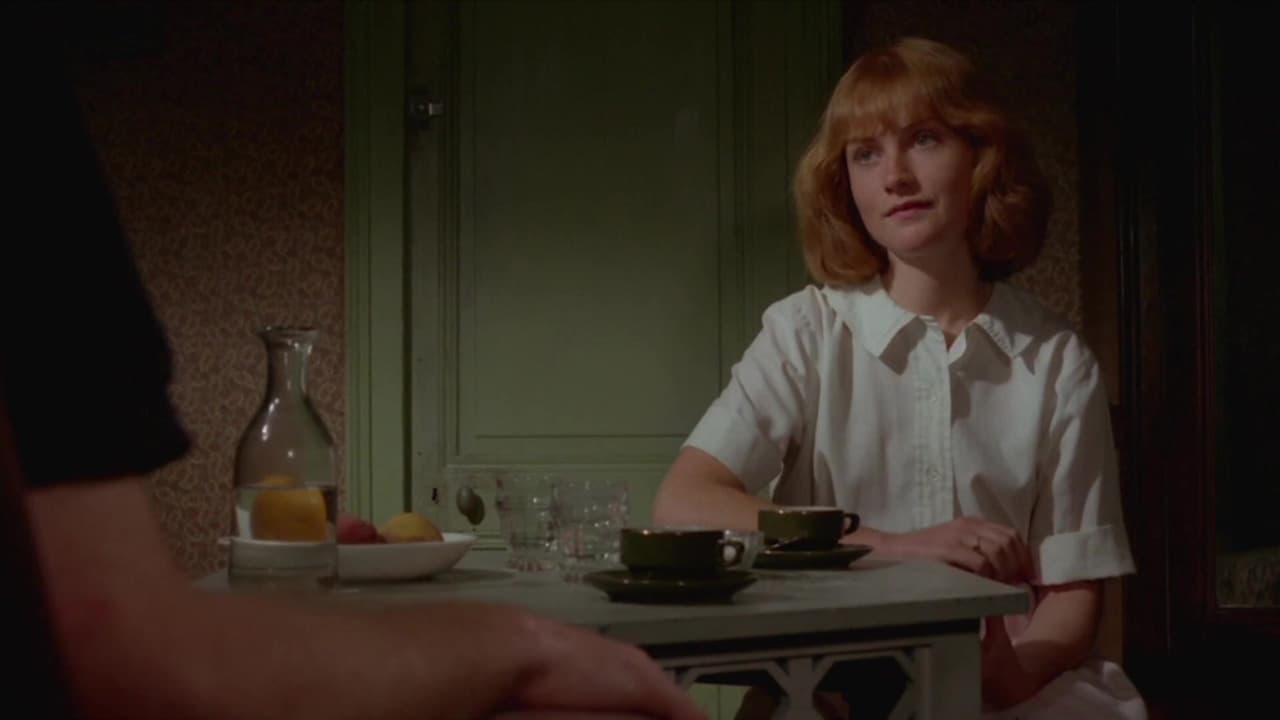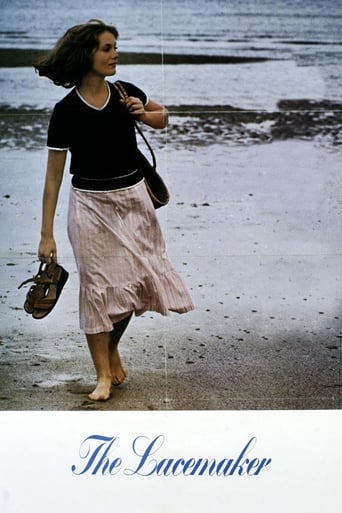



Great Film overall
In truth, there is barely enough story here to make a film.
View MoreGreat example of an old-fashioned, pure-at-heart escapist event movie that doesn't pretend to be anything that it's not and has boat loads of fun being its own ludicrous self.
View MoreIt is encouraging that the film ends so strongly.Otherwise, it wouldn't have been a particularly memorable film
View MoreMoving and memorable psychological drama with outstanding performances. This seemingly simple tale tells us a lot about the way social class and background colour not just our habits and tastes, but our very being. And this influence is not always benign : often we become the owners of mindsets that blind us to the value, or the legitimate needs, of others.France is an apt setting for this kind of tale. On the one hand it is a country with a strict, a VERY strict, social hierarchy, on the other hand everybody is supposed to be free and equal (and, of course, very much in favour of freedom and equality). The resulting contradictions, compromises and tensions strew the landscape with snares for the vulnerable. Be warned : the movie is not a cheery one, it contains a deep tragedy. Dutch poet Werumeus Buning once wrote a poem about the life of roses being destroyed not through a storm, but through a soft, tender, delicate rainfall. The context of the poem is different but the image could very well apply to one of the lead characters, who meets good things - love, romance, emotional awakening, a bit of excitement - and, slowly but surely, gets damaged beyond recognition. All together : "The pleasure of love lasts but an instant, the grief caused by love can last a lifetime"...
View MoreBecause the English-language dvds on offer were either inordinately expensive or abysmally reviewed for their quality I had to get this film in Spanish, which I do not speak. It didn't really matter since its message is not conveyed through dialogue. It might well have been made in the silent era, and been just as powerful. I must have seen it in about 1977, and it has been unforgettable.If there is a flaw to this story, which doesn't affect its quality, it is that Pomme (or Beatrice ?) is surely doomed from the outset. The ending can be seen coming from the very start, and it's thrown into relief by the girl's feisty fellow-hairdresser, Marylene, who bounces back from any reversal.In any case, impossible to give it less than 10/10.
View MoreClass differences are extremely detrimental to human relationships especially to relationships which involve love between a man and a woman.However hard one may try,one cannot really get rid of class differences in daily lives.Swiss film 'The Lacemaker' is sincere in its depiction of a tender love affair which was bound to fail from its inception.Based on a Goncourt prize winning novel by Pascal Lainé, 'La Dentellière' reveals actress Isabelle Huppert in one of the most sensible roles of her acting career.It is with great confidence and ease that she plays the role of a shy woman who is not too enthusiastic about getting into relationships with men.However,a chance meeting with an intelligent boy changes her life for good.La Dentellière succeeds as it depicts how vulnerable some women can be.It is neither anti women nor pro men but it has something for intelligent viewers who would like to be impartial judges of male female relationships.Those who have deep knowledge of French cinema would not fail in recognizing young actress Sabine Azéma playing a minor role.
View MoreOn the whole, the user comment by Dennis Littrell above is excellent. But even excellent comment may contain doubtful details. I do not agree that Pomme was proud and hopeful.When Francois visited Pomme at the mental hospital, she told him that she had had other lovers and had been in Greece with one of them. This was obviously not true. Then why did she say so? Dennis Littrell thinks that she was proud. I take him to mean that Pomme would give Francois the impression that she was quite capable of going on living without him.I cannot imagine that she could have such motives. Although SHE is the one who became sick when he abandoned her, and even so ill that she had to attend a hospital, HE is the one who "needs" support from two friend when he goes to see her, and HE is the one who cries (when nobody sees it). My conception is that Pomme even here revealed her good heart. She tried to make things easy for Francois – he should not need to have any feelings of remorse because of what he did to her.Moreover, I disagree that Pomme's face in the last shot shows a vague hope. I think that it reveals the greatest hopelessness.One Swedish reviewer wrote that things go bad when Francois lets Pomme remain at her own level, and they go bad when he tries to draw her up to his level. – But this is double nonsense. Things are excellent when he accepts her as she is. Moreover, Pomme is realistic. FIRST Francois must finish his study, and afterward they may see what they can do about her. At the present time they cannot even afford to go to the cinema without saving the money elsewhere.Much more important is the other side of the coin. Pomme would really love to be like Francois. In a bookshop she looks at the volumes with paintings by famous artists. But she cannot learn to understand such things without help. And the idea never strikes Francois that he might help her. He just scolds her for being as she is.There are several key scenes. In one of them Pomme is afraid of crossing a street full of motorcars. Francois had soon run over, and now he is standing there and shaking from impatience and irritation. The idea never occurred to him to take her hand and lead her over the street. And when she asks him what is the meaning of the word "dialectic", he gives her no reasonable answer.By and large, the idea of "sexual Samaritans" is unrealistic. Extremely few people are prepared to sleep with another individual toward whom they feel little attraction and expect no other gain. There are nevertheless a few unusual situations in which I would seriously recommend such things. Francois just throws Pomme away, giving no thoughts to the consequences. He does no even participate in the last meal, when he is at home in front of her and will drive her to her mother's home as soon as the meal is over.I claim that Francois did have enough personal strength to continue the relation a little longer, and to try to make the break more gradual and as little harmful to Pomme as possible. He could have seen her sometimes after she had moved to her mother, and he could sleep with now and then for a while.I do think that he had an amount of responsibility for her, and should have done something to help her overcome the breaking of their relation.
View More